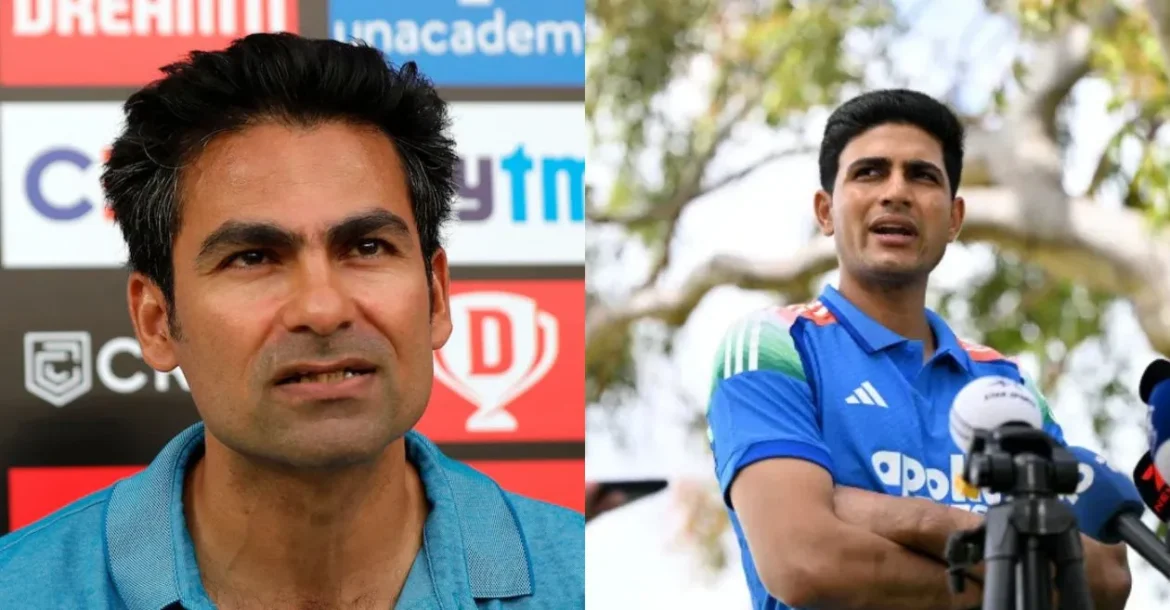India’s seven-wicket drubbing against Australia in the rain-affected first ODI at Optus Stadium, Perth, on October 19, has placed new ODI captain Shubman Gill under immediate scrutiny. The match, reduced to 26 overs per side, saw the Indian batting lineup falter dramatically, highlighted by the brief and disappointing return of veterans Rohit Sharma (8) and Virat Kohli (0). India managed only 136/9, and Australia comfortably chased the revised DLS target of 131 in just 21.1 overs, led by Mitchell Marsh‘s unbeaten 46.
The comprehensive defeat, which ended India’s eight-match ODI winning streak in 2025, prompted former India cricketer Mohammad Kaif to unleash pointed criticism directed not at the rain or the lack of runs, but at Gill’s tactical decision-making, especially concerning the bowling attack on his YouTube channel.
Mohammad Kaif points out captaincy flaws in Shubman Gill after India’s defeat
Kaif firmly believes the team selection betrayed a fundamental misunderstanding of white-ball cricket requirements, particularly in a match shortened by rain. The critique focused heavily on the decision to bench star wrist-spinner Kuldeep Yadav, India’s leading wicket-taker in the recent Asia Cup, in favour of bolstering the batting depth through all-rounders Axar Patel, Washington Sundar and debutant Nitish Kumar Reddy.
Kaif argued that this amounted to choosing “quantity over quality“. The result demonstrated the flaw in this strategy: while the lower order (KL Rahul 38, Axar Patel 31) provided some late resistance, the final score was inadequate. In a short format like the 26-over contest, defensive containment—the primary role of finger spinners like Axar and Sundar—is less effective than strike power. India desperately needed a specialist capable of taking multiple wickets quickly to defend the paltry target.
The inadequacy of the attack was laid bare during Australia’s chase. Kaif labelled Reddy “not a complete bowler,” and fast bowler Harshit Rana conceded 27 runs in 4 overs without taking a wicket. Crucially, Australian spinner Matthew Kuhnemann managed to secure two wickets, confirming that the pitch did offer assistance for spin when deployed aggressively.
“In this team there were many part-time bowers. Nitish Reddy is not a complete bowler. On such a pitch even Sundar is not a complete bowler. Harshit Rana would be disappointed with his bowling. It was the bowlers’ responsibility to win this game. I know it was a low score. But when will you win games as bowlers then? Will you win only with Bumrah and Shami?” Kaif questioned.
Experts like Ravichandran Ashwin supported Kaif’s stance, noting that Kuldeep, a spinner who thrives on bounce, was perfectly suited for Optus Stadium’s large boundaries and lamented the rigid selection policy favouring all-rounders. The management’s focus on batting depth failed to compensate for the top-order collapse and simultaneously compromised the team’s ability to defend the low total by relying on non-specialist bowling options.
Also WATCH: Rohit Sharma and Shubman Gill share popcorn bucket during rain break in Perth ODI – AUS vs IND
Gill’s leadership under scrutiny in Perth
Kaif framed the match as “a test of Gill as captain too,” one he judged the young leader to have failed. Although Gill blamed the top-order’s early failure—India was 25/3 by the ninth over—for putting the team on the back foot , the subsequent defensive bowling deployment pointed to a systemic lack of aggressive tactical planning.
Compounding the pressure on Gill was the highly visible field presence of Kohli. Despite relinquishing the captaincy, Kohli was repeatedly seen motivating bowlers and engaging Gill in discussions regarding specific field placements, demonstrating the immense influence the senior statesman continues to wield over tactical decisions on the field. This dynamic suggests that while Gill holds the title, the overall tactical direction in high-pressure scenarios remains heavily influenced by established veterans.
The first ODI loss adds Gill to an unwanted list of Indian captains who lost their debut match across formats. The defeat serves as a pivotal moment for the new leadership era. The central mandate for Gill and the team management, likely guided by Head Coach Gautam Gambhir‘s known philosophy of prioritising depth , is now to balance strategic planning for the 2027 World Cup with immediate match-winning requirements.
